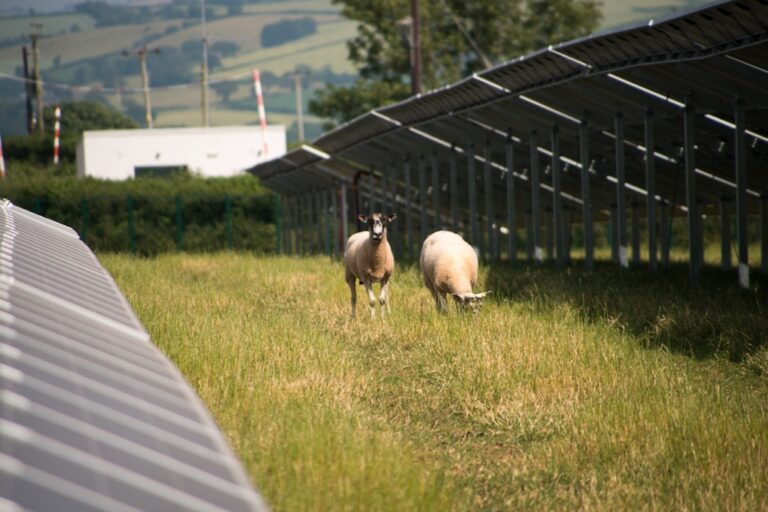A ministerial statement will be presented to Parliament today (May 15) urging councils not to approve planning permission for solar farms on prime agricultural land. The written statement is part of Rishi Sunak’s commitment to protect food security.
It clarifies that such solar projects should only be given the green light if they are ‘absolutely necessary’.
As the Telegraph reported, Energy Security Minister Clair Coutinho said: “As the Prime Minister outlined this week, rising threats around the world mean we need a renewed emphasis on our security.
“I want to see more rooftop solar and, where that is not possible, that agricultural land is protected and the cumulative impact on local villages is taken into account, where they are faced with a large number of applications for solar farms.
“We will ensure we achieve our solar energy goals in a sensible way that delivers clean, cheaper energy but does not jeopardize our food security.”
Councils will be told to take other local solar farms into account when considering new applications, with an emphasis on the ‘cumulative’ impact. Some residents of rural England have expressed their dissatisfaction over the conversion of farmland into solar farms.
Criticism tends to focus on the visual impact of a solar farm or the possibility of Britain losing the ability to grow its own food. Yet both the Conservative and Labor parties support the net zero target by 2050; Achieving this will require expansion in the clean energy sectors.
Regardless of the solar argument, farmers will be allowed to build wind turbines without building permits as part of government plans to stimulate agriculture.
There have been calls to extend permission to turbines as high as 30 meters, still well below the 120-150 meters of the largest onshore wind farms.
This intervention builds on a National Policy Statement issued earlier this year, making it more difficult to build on land of the highest quality (graded from 1 to 3a). The ministerial statement is intended to provide developers and those who make planning decisions with more explicit guidance.
The industry is responding
Solar Energy UK has ‘welcomed’ today’s parliamentary statements as confirmation that existing land use policies will continue to provide stability as the sector expands.
The industry body further stated: “Both Coutinho and the Prime Minister’s wider comments on food security appear to be aimed at a small minority of anti-solar Conservative constituencies, rather than at decision-makers in local councils.
“The solar industry will continue to follow established principles and looks forward to the publication of the government and industry Solar Roadmap, which will lead the way to adding more than 50 GW of solar capacity over the next decade.”
CEO of Solar Energy UK, Chris Hewett, added: “According to Defra, the biggest threat to food security is climate change, and that is what solar farms must combat. Furthermore, without solar farms, hundreds of traditional farms would have collapsed, unable to produce food without the security of a reliable income.”
The Solar Roadmap is expected to be published in the coming weeks.
The Association for Renewable Energy and Clean Technology (REA) has also responded to the written ministerial statement, highlighting that planning guidelines already ensure that construction is not done on the highest quality agricultural land and that cumulative development issues are taken into account, and that the solar energy sector works closely with the agricultural sector.
REA even writes that solar energy would “take up only a small proportion of all UK farmland”. As of 2022, it covered less than that of the British gold courses. The bigger threat to UK food security is climate change.
Dr. Nina Skorupska CBE, CEO of the REA, said: “Restricting further development of solar energy would seriously threaten the jobs and investment created by the solar industry and the large solar energy sector that is now is largely built up without support from the public account.
“It would undermine the government’s ability to achieve a net-zero energy system by 2035 and lock us into expensive fossil fuels, resulting in huge costs for households and businesses.
“We are therefore calling on the Government to publish their Solar Roadmap as soon as possible, following the work of the Solar Task Force, to outline how else we can achieve their ambitious but essential target of 70 GW of solar PV deployment .”


